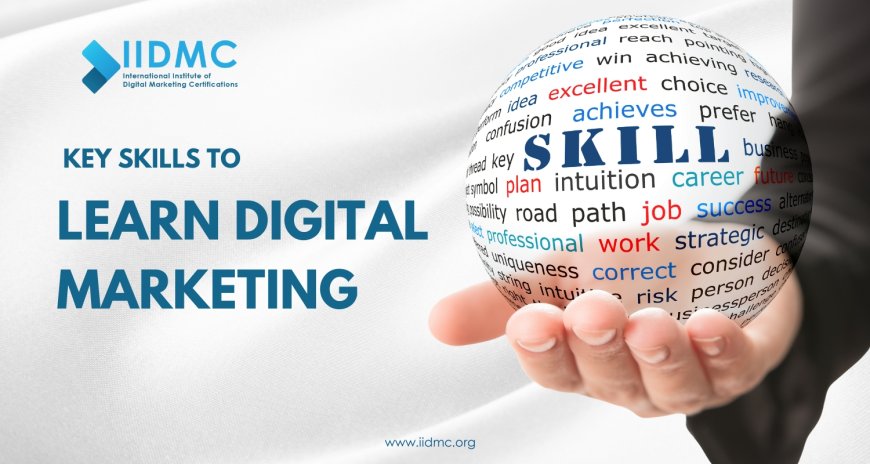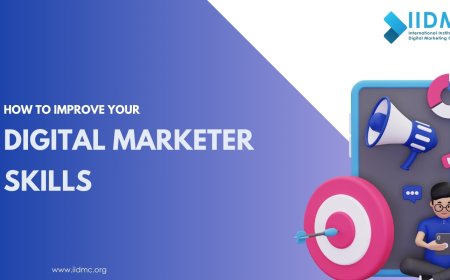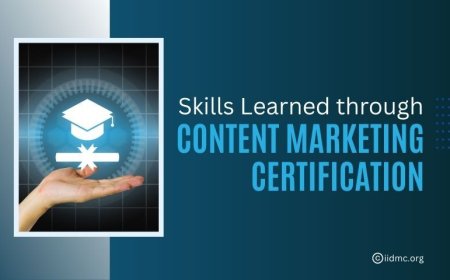Key Skills to Learn Digital Marketing
Get ahead in digital marketing! Learn basics like SEO, PPC, analytics, and more for career growth. Start now.

Learning digital marketing is crucial for both businesses and individuals. Whether you're looking to boost your career or enhance your company's online presence, digital marketing skills are essential. This field covers various techniques to connect with and engage audiences on the internet, such as SEO (search engine optimization), SEM (search engine marketing), content marketing, and social media marketing. Understanding these areas can significantly impact your success online.
As more businesses move towards online platforms, the demand for skilled digital marketers has increased. One key skill in digital marketing is SEO, which involves optimizing your website to rank higher in search engine results. By mastering SEO, you ensure that your content is easily discoverable by potential customers. Similarly, SEM, which includes both paid ads and organic search, helps you target and convert leads effectively through search engines.
Content marketing is another vital aspect of digital marketing. By creating valuable and relevant content, you can attract and retain a specific audience, ultimately driving profitable customer actions. Social media marketing utilizes social platforms to promote products and services, engage with customers, and foster brand loyalty. Email marketing remains a powerful tool for nurturing leads and maintaining customer relationships, while PPC (pay-per-click) advertising provides a direct way to drive traffic and generate conversions.
Exploring the Ins and Outs of Digital Marketing
Marketing has changed a lot because of the internet. It's not just about ads on TV or in magazines anymore. Now, businesses need to know about digital marketing to do well online. Learn Digital Marketing has become important because online competition is tough, and people's attention online doesn't last long. Digital marketing covers lots of different ways to promote things online. There's stuff like making sure your website shows up when people search on Google (that's called SEO), or using social media to get people interested. It's a big mix of strategies and tools.
You've probably heard of things like search engine marketing (that's when you pay to be at the top of Google searches), email marketing (sending out emails to customers), and pay-per-click ads (where you pay every time someone clicks on your ad). All of these are ways businesses can try to get people to notice them online. But, it's not easy. There's so much information and numbers to look at that it can be overwhelming. Businesses need to understand what all these numbers mean and how to use them to make their marketing better.
Plus, everything is connected online. So, businesses need to make sure their marketing works well across all the different places people might find them online. Doing digital marketing well means being creative and smart. Businesses need to come up with good ideas and also be able to understand what's working and what's not. It's a big challenge, but it's really important for businesses that want to do well online. Learning about digital marketing can help them grow and be successful.
Mastering Digital Marketing: A Modern Challenge
Businesses have to deal with a lot when it comes to marketing online. There are so many different ways to do it, and it's always changing. You've got stuff like making sure your website shows up when people search for things (that's called SEO), paying to have your site show up in search results (that's SEM), making cool stuff for people to read or watch so they like your brand (that's content marketing), using social media to talk to customers (that's social media marketing), and sending emails to people who might want to buy your stuff (that's email marketing).
With all these choices, it can be hard to figure out what to do. Each one needs a different approach, from figuring out how Google works to making sure your content is interesting and then checking the numbers to see what's working and what's not. And because things are always changing online, you have to keep up and be ready to try new things. So, the real trick is putting all these different pieces together in a way that makes sense for your business. You need to be good at each part, but also flexible enough to change things up when you need to. It's like putting together a puzzle that's always changing shape!
What skills should you learn to improve your job opportunities?
One really important skill to focus on is learning digital marketing. Nowadays, lots of businesses rely a whole bunch on being online to connect with customers. If you know about digital marketing, you can help promote stuff, make sure people see the brand, and sell more. That means understanding things like social media, getting found on Google, sending out emails that work, and creating good content. Learn Digital Marketingcan make a big difference in finding a job and open up lots of chances in different industries. So, if you want to make sure your job prospects stay good in the future, spending time Learn Digital Marketingis a smart move.
Learn Digital Marketing: Essential Skills for Success
In digital marketing, knowing the right stuff can make a big difference. It doesn’t matter if you’re new to the game or you’ve been around for a while; mastering these important skills can really help you do well online.
1. Understanding Numbers: Knowing how to look at data is important. Tools like Google Analytics can tell you things like who’s visiting your website and how your ads are doing. This helps you make smart choices about what to do next.
2. Creating Good Stuff: Making interesting stuff people want to see is key. Whether it’s writing blogs, posting on social media, or making videos, good content gets people interested in what you’re doing.
3. Getting Found: You need to make sure people can find your stuff online. That’s where SEO comes in. It’s all about using the right words and tricks to show up when people search for things.
4. Being Social: Lots of people are on social media, so you need to be too. Being good at social media means making cool posts and knowing who’s seeing them.
5. Sending Emails: Even though social media is big, email is still really important. Sending good emails means writing catchy subjects and sending the right stuff to the right people.
6. Using Ads: Sometimes you need to pay to get noticed. Platforms like Google and Facebook let you show ads to people who might be interested. Knowing how to use ads well can really help your business.
7. Turning Visitors into Customers: Getting people to visit your website is great, but you want them to do something, like buy stuff. This is where conversion rate optimization comes in. It’s all about making your website work better for you.
8. Understanding Data Better: There’s a lot more to data than just looking at numbers. You need to really understand what it all means so you can make good choices.
9. Thinking Mobile: Most people use their phones to look at stuff online. Making sure your marketing works well on phones is really important.
10. Keep Learning: The internet is always changing, so you need to keep learning too. Being able to adapt to new stuff will help you stay ahead.
Things like making cool content, checking out stats, being good at showing up in online searches, managing social media, sending emails that people like, and more are all really important if you want to do well. These skills help marketers figure out how to deal with the always-changing online world, talk to the right people in the right way, and get good results for businesses. If you keep up with what's going on, get good at the techie stuff, and use your imagination, you can find tons of chances to do great things online. And when you're good at all this, it doesn't just make you more likely to get a job, it also helps you stand out from the crowd in the world of digital marketing.




























